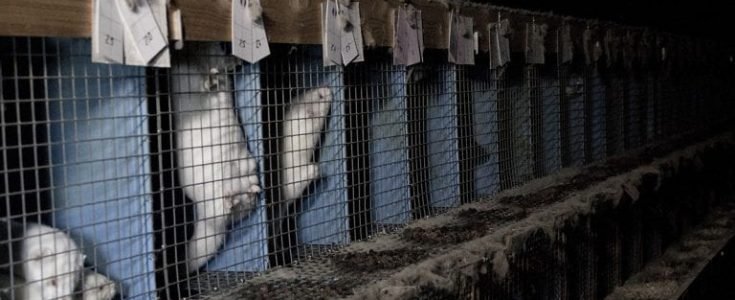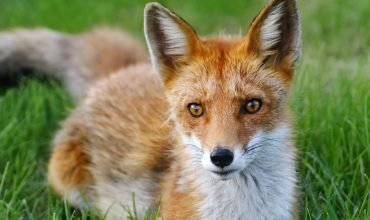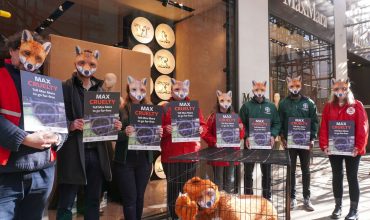The Dutch government has ordered the culling of thousands of mink on nine fur farms, following advice from a team of veterinary and infectious disease experts that mink fur farms could act as a reservoir for SARS-COV-2, allowing it to remain in circulation for a long time.
Dutch MPs were notified of the cabinet decision in a letter sent by the Dutch Agriculture Minister and the Minister for Public Health, Welfare & Sport. The investigation by the Dutch Zoonoses Outbreak Management Team follows the Dutch Agriculture Minister’s statement on 25th May that it was ‘extremely likely’ that two fur farm workers in the Netherlands had contracted COVID-19 from mink infected with SARS-CoV-2.
Mink fur farming was banned in the Netherlands in 2013 with a deadline for complete phase out by 2024. The Netherlands farmed around 4.5million mink in 2018. Respect for Animals is supporting calls by Dutch animal organisations for the closure of the approximately 128 fur farms that remain to be fast tracked in light of the COVID-19 risk, and that the infected farms are closed for good.
The Ministers’ letter to the Dutch Parliament notes that more infections are expected to be detected in the coming weeks, and that as human-human infection rates decline, mink-human infection could increase the incidence of SARS-CoV-2 in humans. All fur farms in the Netherlands are now undergoing mandatory screening, and measures have been put in place including a restriction on both farm visitors and the transportation of mink.
Non-infected farms will be required to continue to follow current measures and to submit carcasses of “naturally” deceased animals each week. The Ministers’ letter states that the Dutch cabinet is considering whether and how to support fur farms to voluntarily terminate their businesses before the 2024 deadline.
There is now deep concern about the welfare of the mink who contract this potentially fatal virus. Research from the farms in the Netherlands has shown that symptoms can cause “digestive and respiratory” issues and can prove fatal for the animals. Mink can also experience the virus without showing symptoms.
The other main species reared on fur farms – foxes and raccoon dogs – are known to be able to become infected with SARS-CoV-related viruses, with the potential to act as intermediate hosts to pass viruses to humans. Raccoon dogs and foxes in wildlife markets in China were both found to have been infected with SARS-CoV.

Mink fur farms and COVID-19 timeline
- 26 April: SARS-CoV-2 identified on two mink farms in Netherlands.
- 9 May: SARS-CoV-2 found on two more mink farms in Noord Brabant as well as in dust particles in the barns in which they are kept in.
- 15 May: SARS-CoV-2 diagnosed in three cats living at a mink farm where the presence of the virus was detected.
- 19 May: First farm worker reported to have contracted COVID-19; Minister confirms compulsory screening is extended to all mink farms in the Netherlands.
- 20 May: Dutch Agriculture Minister Carola Schouten tells MPs it is likely mink infected with SARS-CoV-2 passed the virus to a worker.
- 22 May 2020: Seven of 14 employees of a mink farm in La Puebla de Valverde (Spain) test positive for SARS-CoV-2.
- 25 May: A second farm worker contracts COVID-19, Minister confirms transmission from mink to humans now “extremely likely.”
- 28 May: Ministers’ confirm mandatory screening of all Dutch mink farms is underway.
- 1 June: SARS-Cov-2 found on another three mink fur farms in the Netherlands, with a fourth case confirmed on 3 June bringing the total to nine farms.
- 3 June Dutch Ministers publish final report confirming animals on the infected farms will be culled, a measure taken “in the interests of both public and animal health”.




